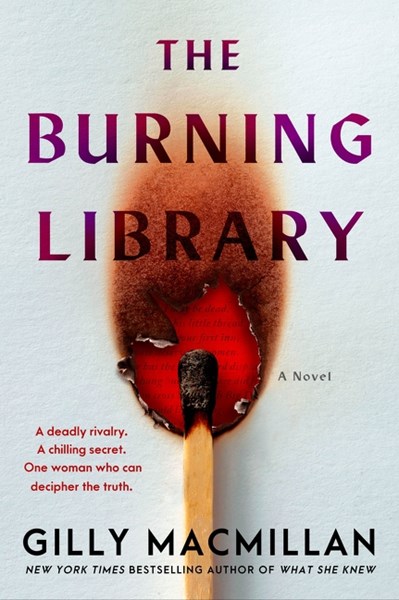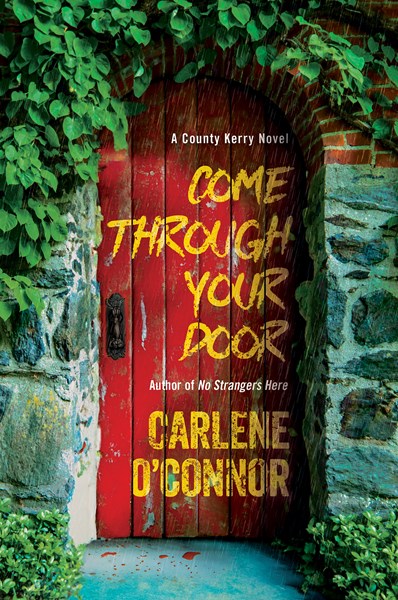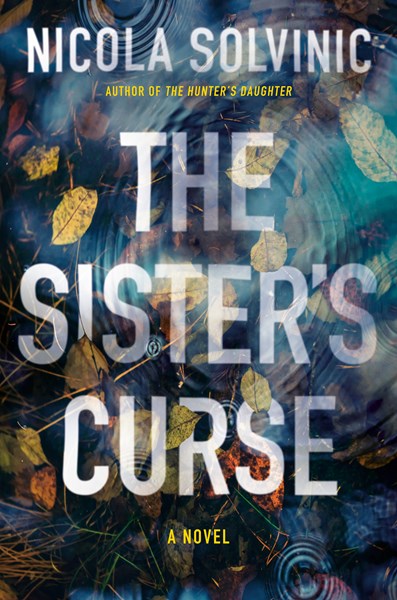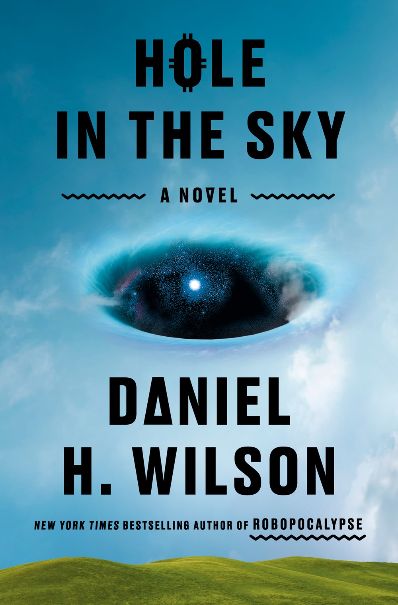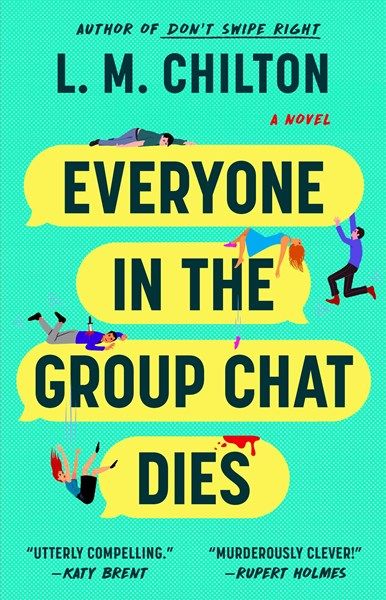Christmas in Oxford sounds like a good idea. But as might be predicted by anyone acquainted with Ruby and her housemate and employer, Mr. Owens, that is likely a false assumption. While antiquarian books are their business, the Oxford sojourn highlights Egyptian artifacts and brings Ruby back to the harsh memories of her WWI service as an ambulance driver. Her feelings for Ruan, healer and witch, must be confronted, as must her trust in old and dear friends, including Leona, her partner in ambulance duties. Circumstances require much late-night skulking involving lockpicks and a reluctant Ruan as a partner, as well as attendance (unwilling) at overblown parties.In the end, the heroes are found and the evildoers are truly evil, but as with many books in this series, reading is easier if one starts at volume one. Smuggling, murder, and cocaine are mixed within a roiling undercurrent of social and political tension in an atmosphere of scholarship. A nicely drawn period piece.
Review
Yale University’s Beinecke Library possesses the 15th-century Voynich manuscript, a codex so mysterious and untranslatable that it would stump even The Da Vinci Code’s Robert Langdon. But Macmillan (The Manor House) daringly incorporates this unique book as a possible clue to an even more cryptic ancient text in a twisty feminist thriller that features deadly secret societies, a sleuthing scholar, a Scotland Yard detective, and an action-packed quest that begins in Scotland and ends in Italy. On a remote Scottish island, Eleanor Bruton, a member of the Order of St. Katherine, or the Kats, is studying an antique piece of embroidery for clues to a valuable title, The Book of Wonders, when she is brutally murdered. Her killers work for a rival women’s group, the Larks. While the Kats seek power over men through their traditional roles as wives and mothers, the equally ruthless Larks represent feminist modern women. Caught unwittingly between the two groups is Anya Brown, a brilliant, newly minted PhD., who has been hired by the elite Institute of Medieval Manuscripts in St. Andrews to study a private collection of rare materials. In London, DC Clio Spicer suspects that the “accidental” death of her mentor might be connected to Bruton’s killing. Despite the anticlimactic conclusion, Macmillan takes readers on an exciting adventure that will please Katherine Neville and Dan Brown fans.
This fun-loving mystery/romcom features Juliette Winters, author, editor, and likely workaholic. The book opens with Juliette hobnobbing with the Seattle elite on a posh yacht, working the crowd in anticipation of an announcement from business titan Warren Ellingham. It seems that Warren has a) decided to publish his memoirs and b) promised Juliette exclusive rights to the book, the most exciting, salacious tell-all that Seattle has seen in years, if not decades. Except things don’t always make it to the podium as smoothly as one might like. Before he can get a few words out, Warren keels over—likely from a heart attack—and the manuscript disappears, with Juliette left holding an empty bag. It’s easy to feel sorry for Juliette, but the arrival of Charlie Hawkins, MD on the scene, does a lot to cheer things up, and the woman who asserts not to have time for romance may well have to re-examine that claim, while still looking for Warren’s manuscript. Sure to delight fans of lighter mysteries from L. M. Chilton, Mia P. Manansala, and Elle Cosimano.
For the past five summers, Lily Lennox has left her successful business in Cincinnati to work as a lifeguard at elite Caribbean Island wellness resort the Riovan. But no one knows why. They also don’t know about the string of deaths attached to the Riovan that conveniently align with Lily’s annual stay. As the protagonist returns to her annual island lifestyle, she exposes the truth behind the Riovan’s problematic wellness practices and her own reasons for returning. But this year, Lily’s plans are interrupted by a mysterious journalist, Daniel Black, who is intent on chipping away at any crack in the resort. Their attraction to each other only grows as Lily resists and attempts to divert his attention away from the resort’s secrets. This summer-vacation thriller provides a witty outlook on wellness culture and exposes the harsh impacts of body-image obsession while following a female antihero along a dark path of revenge, reflection, and romance. For fans of Emily Henry’s feel-good nature and Jeneva Rose’s twisted thrills, who will be uncovering its mysteries until the very end.
Stewart brings us back to a time of tumult: mid-1960s rural Vermont. In this sequel to Agony Hill, we are reintroduced to Detective Frank Warren, a good guy whose efforts at law enforcement—assisted by Trooper “Pinky” Goodrichsend—see the two of them traipsing up and down the county at all hours. This book opens as one of the visitors to the Ridge Club, a hunting and fishing lodge exclusively for rich and distinguished men, is found dead, on the same day that deer season opens. A mere coincidence, right? But Frank suspects that there may be more than someone accidentally shooting themselves while cleaning their rifle. So he and Pinky launch an investigation that tangles them up in the Ridge Club members when a violent snowstorm comes along to isolate them even further. This closed-circle narrative is wonderfully well-done, deeply satisfying, and a compelling portrait of a community undergoing change. Readers who enjoy these books will also appreciate Julia Spencer-Fleming, William Kent Krueger, and Ausma Zehanat Khan.
Twists within deceptions are at the heart of O’Connor’s story of insanity, confusion, and murder. Some readers, in fact, may need to take notes to keep straight the murder of Annabelle a year ago from what is happening in the present day. Veterinarian Dimpna Wilde is once again at the center of events that involve her assistant, Niamh, with a dead body found in her apartment. Cormac, Dimpna’s love interest, is investigating and is tricked by a fake crime-scene photographer who cleans the scene of evidence and disappears, just one of the outlandish events that occurs. The confusion about who is who and what is what is eventually explained, but hardly makes the situation clearer. There is even a bizarre Irish pun of a name that somehow brings the murderer into focus. This series, while offering much in the way of Irish local color, is far from cozy, and offers a lot of satisfaction for readers willing to untangle all the complicated knots.
In Solvinic’s debut, The Hunter’s Daughter, readers met Detective Anna Koray, daughter of a forest-god worshipping serial killer, who was in therapy to bring back childhood memories (this latest book can stand alone, but it’s worth going back to the first to get to know Anna better). She’s still an expert at her father’s curriculum—wilderness tracking—a skill that comes into play when there is new upheaval in the area, starting with the near-drowning of a boy who’s rescued by Anna. She suspects that the almost-tragic event may not have been an accident, and the investigation brings in the long-cold crime of a local woman who disappeared 25 years before and wrongdoings of the town’s rich thugs, all tinged with supernatural elements. In the meantime, Anna’s continuing her relationship with a young, devoted ER doctor who has problems of his own. Anna is a complex character with a well-hidden dark side that, combined with her steadfast kindness and smarts, will keep readers rooting for her to come out on top. For fans of wilderness thrillers and all who enjoy a thrilling police procedural.
An astrophysicist, Dr. Mikayla Johnson, uncovers evidence from the Voyager spacecrafts that an enormous object of some type will crash into Earth. Jim Hardgray lives in Oklahoma, and his estranged teenage daughter is visiting. No matter what he does to try to make amends, it only makes her angrier. The possible meteor’s trajectory that Johnson discovered leads directly to Hardgray’s backyard. When others in the scientific community and government realize that what’s coming is actually a vessel, it provides the world with an opportunity for first contact with an alien species. But when a communication with the object produces a sound like screaming demons scratching long nails on a chalkboard, it quickly becomes evident that what is about to crash is beyond human understanding. Real-life theoretical physicist Michio Kaku once compared mankind meeting beings from another world to humans trying to teach ants about the internet—it’s impossible to comprehend a species so truly unlike anything we have ever imagined. Wilson combines the best classic alien films, Close Encounters of the Third Kind and Arrival, with the glue that holds even dysfunctional families together, the strength of love and heritage. Readers will not think about our place in the cosmos the same way again.
Chase Burke works as a sommelier for a restaurant in New York’s Chrysler Building and has put his military life behind him. He’s about to ask out a pretty government official, Tanya, who is visiting him on the job, when armed men attack, and she seems to be their target. Chase kills some of the men, but Tanya is hurt. Detective James Campbell and his partner, Detective Alice Doyle, are assigned the case and are told to work closely with Federal authorities. They soon determine that Chase has a lot of skeletons in his closet, and he immediately becomes the prime suspect. Chase realizes he must uncover the truth if he’s not going to rot in jail for the rest of his life, but digging for answers puts him in the crosshairs of a secret group of killers that thinks he knows too much. Whom can he trust while his face is plastered all over every news channel? From the opening page to the last, this book is a relentless force of non-stop action and thrills. Gervais and Steck write great books and have crafted a stellar story together. Comparisons to Mark Greaney and Jack Carr are warranted, but this first in a series might be even better. The next one cannot come fast enough.
This is one of those binary books. As darkly funny as it’s poignant and moving. Light and cozy, except when it’s suspenseful and horrifying. In short, there’s a whole lot going on, yet Chilton, author of the delightful Swiped, succeeds in keeping it all afloat. Kirby Cornell, a failed Nepo Baby, lives in the bleak town of Crowhust in an even bleaker apartment with a gaggle of roommates. It takes a desperate message to their old group chat to get Kirby and her chums to put down the beer. But the message isn’t what’s so scary. It’s that the message comes from Esme, an ex-roommate who died a year ago. Creepy, no? The novel moves between a year ago and the present day, with plenty of Crowhurst, including the local “fayre,” in between. Because it turns out that Crowhurst was the killing ground of a terrifying serial killer who was active in the 1980s, may have never been fully identified, and who provides Kirby and chums with plenty of speculation. A fast-moving, clever thriller that uses social media to keep the narrative thriving. Teens and twenty-somethings should love this.


